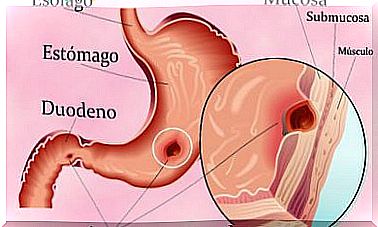Nutrients For Healthy Eyesight
Having healthy eyesight is something that, as we age, becomes more complicated. There are numerous ocular pathologies that increase in prevalence with age. In addition, many of them are influenced by nutritional deficiencies.
For example, cataracts, macular degeneration or glaucoma. They are diseases that worsen the quality of vision and whose progression can be accelerated when certain vitamins or minerals are lacking.
Therefore, trying to eat a balanced diet is essential to maintain healthy eyesight. In this article we explain which are the vitamins and minerals that most influence vision and in what foods you can find them.
Vitamins necessary for healthy eyesight
Vitamins are substances that the body needs to be able to carry out all its functions. Each of them has a specific role. Although some, such as D and K, can be synthesized by the body, most of them are obtained from the diet.
Specifically, vitamins A, C and E play a fundamental role in relation to vision. So much so that its deficiency is associated with pathologies and even types of blindness. We will explain it in the following sections.
Vitamin A
Vitamin A is one of the most relevant in relation to healthy eyesight. It is one of those involved in the integrity and proper functioning of all the mucous membranes of the body. Also, participate in night vision.
When there is a deficiency of vitamin A, the lubrication of the eyes is affected. In other words, there is a lower synthesis of tears, so the eye is drier. This causes them to be irritated, more sensitive to any aggression and they tend to itch or sting.
On the other hand, according to the American Academy of Ophthalmology, not having enough vitamin A is related to an increased risk of night blindness, especially in pregnant women. They also explain that it is the leading cause of preventable blindness in children worldwide.
This nutrient is obtained from vegetables, some dairy products, and seafood. However, the main source is beta-carotene. They are a type of plant pigment that is present in fruits and vegetables, such as carrots.

Vitamin E
Vitamin E is a substance that acts as an antioxidant. This means that it prevents cells and tissues from possible free radical damage. In an article published in the Cuban Journal of Ophthalmology, they explain the importance of this in relation to healthy eyesight.
The eyes are exposed to light, ultraviolet radiation, and environmental pollutants. This makes them more at risk of suffering due to oxidative damage. Therefore, adequate levels of vitamin E can improve this situation.
This substance is found in foods of plant origin, such as avocado, spinach or chard. In the same way, vegetable oils, such as extra virgin olive oil, also provide vitamin E. This is explained in an article carried out at the University of Seville.
Vitamin C for healthy eyesight
Vitamin C plays an important role in healthy eyesight, since its deficiency seems to be related to a decrease in visual acuity. Similarly, it has been linked to the progression of cataracts. This was demonstrated in another study conducted by the American Academy of Ophthalmology .
This vitamin can be found in citrus fruits such as lemons, oranges or tangerines. Also in other vegetables such as strawberries or melon, broccoli, peppers and tomatoes.
Vitamin B complex
The B complex vitamins are eight different nutrients whose function is related to cellular metabolism. Regarding healthy eyesight, the most relevant are vitamin B6, B9 and B12.
Research published in Science Reports explains that the deficiency of these substances is associated with an increased risk of suffering from age-related macular degeneration. It is a disorder that affects central vision. When it appears, the ability to view details or to read is lost.
Vitamin B complex can be obtained through foods such as clams, sardines, beef, or by eating liver from other animals. They are the ones that are most often consumed in supplements, because they are mostly obtained from animal origin.
Lutein and zeaxanthin
Lutein and zeaxanthin are substances that are part of the carotenoids. They are found in fruits and vegetables, especially green leafy vegetables. Both are necessary for healthy eyesight. Especially to reduce the risk of macular degeneration, as explained in a study published in Clinical interventions in aging .
Essential minerals for healthy eyesight
Minerals, like vitamins, are substances that the body needs to perform many functions. They must be introduced through the diet. In the following sections we list which ones are the most important for healthy eyesight.
Selenium
Selenium is a mineral found in walnuts, pine nuts, garlic, and whole grains. It is involved in the synthesis of the enzyme glutathione peroxidase, with a strong ocular presence. This enzyme reduces oxidative damage, reducing the risk of diseases such as macular degeneration.
Zinc
Zinc is another mineral that, in adequate concentrations, allows for healthy eyesight. Its function is related to the synthesis of melanin. Melanin is a pigment that, in addition to the skin, is present in the eyes.
In fact, it protects the eyeball from ultraviolet radiation. Zinc is found in nuts, such as almonds and certain cereals (corn, brown rice). It can also be obtained by eating seafood.
Calcium and healthy eyesight
Calcium is a mineral known to be necessary for maintaining bone health and for growth. However, this is not its only role. Its deficit is also associated with an increased risk of suffering from visual problems.
The truth is that some studies have also linked calcium consumption with an increased risk of having macular degeneration. Therefore, there is still no evidence that taking supplements of this mineral is beneficial for vision.
While it is true that dairy products are the most widespread source of calcium, they are not the only one. Legumes, nuts, onion or broccoli are very rich in this mineral.

Good nutrition for healthy eyesight
As we have explained throughout the article, a complete and balanced diet can provide all the minerals and vitamins necessary for healthy eyesight. At least to protect the progress of certain eye diseases, such as macular degeneration or cataracts.
However, the fact of taking nutritional supplements to achieve it is not entirely consensual. In any case, they must be recommended by a doctor. Many of them are associated with side effects due to excess.
Also, diet is not the only factor that influences healthy eyesight. It is very important to take care of certain habits that can worsen vision. For example, the continued use of screens or the fact of straining your eyes frequently.
Therefore, it is recommended to go to the ophthalmologist frequently and follow his recommendations. Wearing glasses or contact lenses when necessary is also essential to prevent visual acuity from deteriorating.









